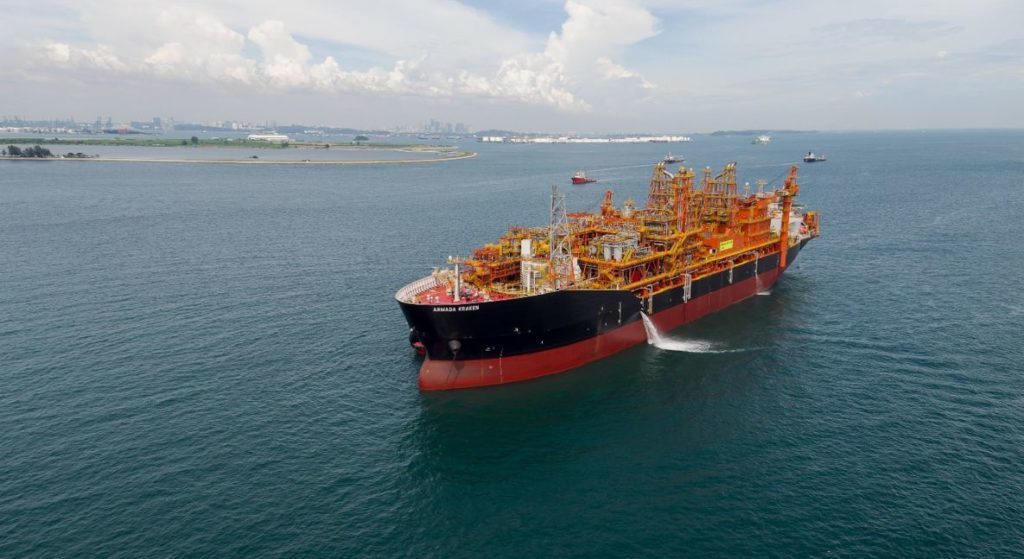
Major production issues at the North Sea Kraken FPSO have hit vessel owner Bumi Armada in the group’s pocket.
In the first six months of the year the Malaysian-based group took in profits £52 million, down from £63m in the same period in 2022.
Revenue also took a hit, falling from £172m to £169m year on year.
Bumi blamed the decrease in various financial metrics on the failure of hydraulic submersible pump (HSP) on the Kraken FPSO that constrained production at the EnQuest field.
The North Sea vessel was taken offline in June following the breakdown, though output a few weeks later after remediation works were carried out.
In late July Bumi revealed that one HSP transformer has been patched up, boosting flows to around 90% of its previous level.
And the next month the company confirmed production had returned to “pre-shutdown levels”.
Back up components to insure against future failures are estimated to arrive and be installed in September 2023.
Sat some 220 miles from Aberdeen, the floating production storage and offload (FPSO) vessel is leased and operated by duty holder Bumi Armada on behalf of Kraken field operator EnQuest (70.5%) (LON: ENQ) – the remaining stakes are held by Waldorf Petroleum.
The vessel is a converted Suezmax tanker and has a nameplate production capacity of 80,000 barrels per day, storage capacity of in excess of 600,000 barrels and is able to handle 460,000 barrels per day of fluids.
It has served the namesake oilfield since 2017.
EnQuest reported gross production of around 26,000 boepd from the vessel through 2022.
The operator said in May the early part of the year had seen “top quartile performance” at the vessel, with production efficiency and water injection efficiency both at around 94% as of the end of April.
Meanwhile further planned drilling at the field has been shelved, with EnQuest blaming the government’s windfall tax for its decision to cut spending.
Recommended for you

